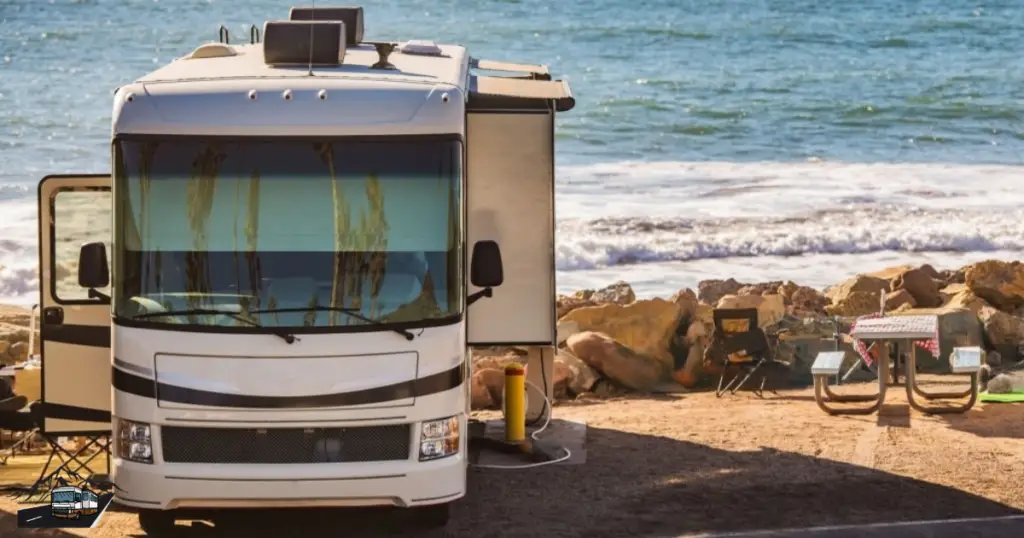Are you ready to embark on your next RV adventure, but feeling a bit puzzled about what powers up your generator? Fear not, fellow wanderer, as we unravel the mystery of the battery that kickstarts the heart of your RV—your trusty generator. In this electrifying journey, we’ll explore the types of batteries that power RV generators, shed light on the importance of choosing the right one, and spark some insights into ensuring your nomadic haven stays powered up when you need it the most.
The Heartbeat of Your RV: Generator Basics
Before we dive into the battery talk, let’s take a moment to appreciate the significance of an RV generator. It’s the powerhouse that keeps your appliances running, lights shining, and devices charging when you’re off the grid or parked without electrical hookups. The generator is your lifeline, and understanding its heart—the battery—is crucial for a seamless nomadic experience.
The Power Duo: Starting Battery vs. House Battery
Now, let’s get to the core of the matter. RVs typically have two types of batteries: starting batteries and house batteries. Each plays a distinct role in keeping your home on wheels alive and kicking.
1. Starting Battery:
Think of the starting battery as the ignition key to your generator. Its primary function is to crank the engine and get the generator running. These batteries are designed to deliver a quick burst of energy to start the engine, making them essential for kickstarting your adventure.
2. House Battery:
While the starting battery gets the generator purring, the house battery takes over once everything is up and running. This powerhouse is responsible for supplying a steady stream of power to your appliances, lights, and other electronic devices within the RV. House batteries are designed for deep discharges and prolonged use, making them the backbone of your nomadic abode.
Choosing the Right Battery for the Job
Now that we’ve distinguished between the starting and house batteries, the million-dollar question arises: which one is responsible for firing up your RV generator? The answer is simple yet crucial—it’s the starting battery.
The starting battery is specifically engineered to provide a quick burst of energy, making it the ideal candidate for cranking the generator’s engine. Its high-cranking amps (CA) and cold-cranking amps (CCA) ensure a swift and efficient start, allowing you to bring your generator to life with ease.
While the house battery doesn’t directly kickstart the generator, it plays a pivotal role in sustaining the power supply once the generator is running. Opting for a high-quality house battery is equally important to ensure a reliable and consistent power source for your appliances and devices throughout your RV escapades.
II. Cracking the Code: Which Battery for Your RV Generator?
Now that we’ve established that the starting battery is the star of the generator ignition show, let’s delve into the nitty-gritty details of choosing the right one for your RV.
1. Voltage Matters:
RV generators typically run on 12-volt systems, so it’s crucial to choose a starting battery that aligns with this voltage requirement. Opting for a battery with the correct voltage ensures compatibility and seamless integration with your generator.
2. Cranking Amps (CA) and Cold Cranking Amps (CCA):
As mentioned earlier, cranking amps and cold cranking amps are key performance indicators for starting batteries. Look for a battery with sufficient CA and CCA ratings to ensure a quick and efficient ignition, especially in colder climates where engines might be more challenging to start.
3. Size and Fit:
Not all RVs are created equal, and neither are their battery compartments. Ensure that the starting battery you choose fits snugly into your RV’s designated battery space. Opting for the right size eliminates installation hassles and ensures a secure and stable power source for your generator.
4. Maintenance-Free vs. Flooded Batteries:
Modern RV enthusiasts often lean towards maintenance-free batteries for their convenience and hassle-free operation. However, some still opt for traditional flooded batteries, which require periodic checks and maintenance. Consider your preferences and RV lifestyle when choosing between the two.
III. Top Picks for RV Generator Starting Batteries
Now that you’re armed with knowledge on what to look for in a starting battery, let’s explore some top picks that have earned their stripes in the world of RV generators.
1. Optima Batteries 8014-045 D34/78 YellowTop Dual Purpose Battery:
This dual-purpose battery is a favorite among RVers for its exceptional starting power and deep-cycle capabilities. Its unique SpiralCell design ensures a strong and clean power source, making it an ideal companion for your RV generator.
2. Interstate Batteries 12V 35AH Sealed Lead Acid (SLA) AGM Deep Cycle Battery:
Designed with AGM (Absorbent Glass Mat) technology, this sealed lead acid battery is maintenance-free and offers reliable power for starting your generator. Its deep-cycle capabilities also make it a reliable choice for powering your RV’s electrical systems.
3. ACDelco ACDB24R Advantage AGM Automotive BCI Group 51 Battery:
Known for its durability and high-cranking amps, the ACDelco Advantage battery is a solid choice for RV enthusiasts. Its AGM design ensures efficient power delivery, making it a reliable starting battery for your generator.
Conclusion:
Power up your RV adventure with the right starting battery for your generator. From understanding the basics of RV generators to deciphering the power play between starting and house batteries, you’re now equipped to make an informed decision. Explore the top picks for RV enthusiasts, ensure a seamless nomadic experience, and get ready to ignite your journey with a reliable and powerful battery at the helm. Your RV awaits, and with the right battery, there’s no limit to where your adventures may take you!



